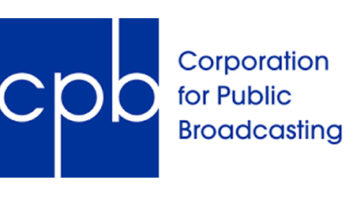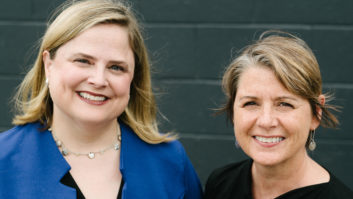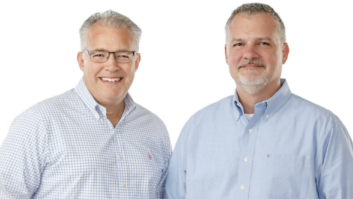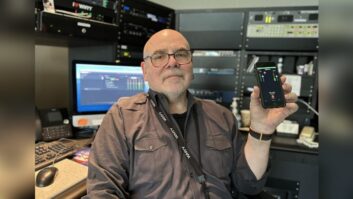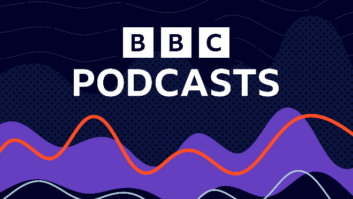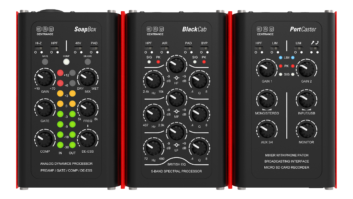BOSTON — In a bid to harness the audience-building potential of podcasts for U.S. public media radio and TV stations, the Corporation for Public Broadcasting is spending $1 million to fund Project Catapult.

Under the supervision of Public Radio Exchange (PRX), five public broadcasting stations will be selected from a pool of applicants to attend a Project Catapult podcast development “boot camp.” It will be held in 2017 over 20 weeks at the PRX Podcast Garage audio production center in Boston, aided by homework at each station’s own facilities.

Kerri Hoffman “Our goal is to get each station’s attendees to learn how to produce new and unique podcasts to build their respective station’s audience base, including learning how to develop digital content for this niche, attract and train diverse talent, engage audiences and find ways to monetize these new productions,” said PRX CEO Kerri Hoffman.
“Our PRX instructors will help attendees learn the technical ropes of podcasting — which isn’t just radio streamed online.”
At the end of Project Catapult’s boot camp process in May, each participating station will have produced a podcast series with at least 20 episodes. These podcasts will be presented online by these stations in partnership with PRX within the next 12 months.
WHY PROJECT CATAPULT?
At first blush, broadcasters might be confused by the need for training their colleagues in podcast production. After all, aren’t podcasts little more than standard broadcast fare prerecorded and then served online as audio on demand?
Although many radio/TV stations can — and do — offer podcasts that are merely retreads of existing on-air content, such conventional fare is not what is driving this medium. What makes podcasts like This American Life’s “Serial” popular is that they are telling unique stories in ways that radio and TV usually doesn’t — in the case of “Serial,” by pursuing a single story over an entire season.
“Podcasts are a different form of storytelling, with lots of room to do things differently than we can do them on air,” said Hoffman.
“Freeing ourselves from the ‘tyranny of the broadcast clock’ where everything has to fit within standard time limits is only the beginning. With podcasts, you can let the content dictate the time length, the style, the focus and who gets to talk. You can also open up the medium to all kinds of diverse voices; speaking in whatever ways work best for them and the flow of the story.”

Erika Pulley-Hayes Podcasts also allow public radio/TV stations to test new ideas — especially those involving unconventional production styles and content — “in a low-risk environment,” said Erika Pulley-Hayes, CPB’s vice president of radio. “You don’t necessarily want to gamble on unproven, innovative talent and shows in your main over-the-air slots, because there is too much at stake.” Podcasts are a great place to try these ideas out, to work out the kinks and maximize the content’s appeal before taking them to air.
In addition, CPB is pushing into podcasts because “we want to be where the young listeners are,” Pulley-Hayes said. “Podcasting is an evolving new medium that appeals to the digitally-savvy younger listeners that radio/TV needs to win back, plus the new production talent that we also need to keep public radio/TV relevant. If we don’t, this young talent may well ignore radio/TV for new media.”
There’s a good reason Project Catapult will be headquartered at the PRX Podcast Garage: Just as the army disrupts its recruits’ comfortable patterns by putting them into a new and different boot camp environment, PRX wants to put its own recruits into what Hoffman calls a true podcasting eco-system, where the techniques and styles of this new medium dominate.
“We want to open their minds to new ways of creative thinking, and get them knocking around ideas with everyone else under our instructors’ guidance.”
“NEW VOICES, NEW AUDIENCES”
Here is how PRX described the Project Catapult podcast training program to potential applicants:
PRX and CPB are committed to diversifying the sound and the people creating public media podcasts, addressing challenges that public media faces: identifying, nurturing and developing diverse talent and doing so in a way that supports a new generation of public media with the intention of sustainability.
Podcasting offers a powerful way to share voices, creativity, thoughts, music and a wide range of information, narrative and experience in an intimate way that parallels radio.
Unlike radio, podcasts can be an “easier lift.” The barrier to entry is relatively low, with many free editing tools, affordable software and equipment. With literally hundreds of thousands of existing podcasts and new ones launching every day, stations, general managers, program directors, hosts and donors are struggling with how to leverage and advance this incredible opportunity. …
We are consciously looking to develop diverse talent who range in background, ethnicity, gender, experience, voice and style. We encourage any station looking to develop diverse talent or reach an expanded audience — whether this is related to race, ethnicity, religion, economic background, age, sexual orientation, physical abilities or other — to submit an application. We are interested in your mission.
Because public radio/TV stations don’t have budget to lose staff for 20 weeks solid, Project Catapult has been designed to balance its disruptive approach with fiscal realities. The actual boot camp will run one week at the PRX Podcast Garage in January. The students will then head home, then return for three two-day Creative Review sessions in February, March and April, to see how each station is progressing with its own podcast series.
The final Creative Review will be held at the PRX Podcast Garage next May. It will be followed by a showcase the following day to let students display the podcast series that they have produced.
Worth noting: PRX will give each station money to cover staff member travel, hotel and meal costs while at the PRX Podcast Garage. “We will expect our five stations to keep meticulous records of expenditures,” said Pulley-Hayes. Expense reports will be filed with PRX.
PRX and CPB sought applications to Project Catapult from U.S. CPB public radio/TV stations that are eligible for community service grants. Although previous podcasting experience was not required, each applicant had to pitch a single podcast idea (including content and format), a list of station staff assigned to the podcast who will travel to Boston for the workshops and a description of the audience that the applicant station hopes to attract, among other points to be covered. Applications were due in early November.
“If Project Catapult works as we hope, it could be the start of an ongoing process to help our member stations proactively respond to the opportunities offered by podcasting and other forms of new media,” said Erika Pulley-Hayes. “Certainly there is a pressing need for us to do so.”





